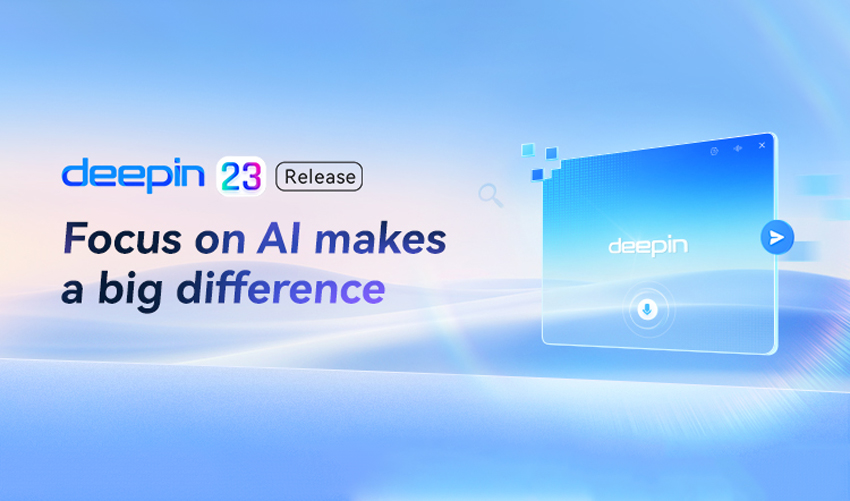
by George Whittaker
Introduction
"We don't consider simply adding or removing a few upstream applications, modifying the language, wallpaper, or adjusting the application layout to be a genuine version update of an operating system. We aspire that every major version update contains a wealth of features truly needed by users and innovative content to push the boundaries of what a Linux desktop distribution can achieve, making it as powerful as commercial operating systems like Windows and macOS."
— Liu Wenhuan, Founder of the deepin Community
On August 15, the internationally renowned open source community deepin held an online event themed "Born with AI, Remarkably Different," officially releasing the open source operating system deepin 23. This release brings significant updates, including the new DDE Vision, AI For OS, the "Linyaps" application ecosystem, and the "deepin IDE" integrated development environment.— Liu Wenhuan, Founder of the deepin Community
"In the past 20 years, deepin has achieved significant innovations and breakthroughs in the field of open source operating systems. We have not only led the development of domestic open source distributions but also demonstrated forward-thinking in the transition to independently developed desktop environments," said Zhang Lei, Chairman of the deepin Community, in his opening remarks.
As a gift for the community's 20th anniversary, deepin 23 has undergone three years of development, with over 200 product optimizations and new features, 9 version iterations, 51 internal tests, and 8 self-developed development tools. Every innovation has been aimed at making deepin 23 better.
Root Community Growth, Full-Stack Independent OS Development
To truly control the development, upstream community leadership, and supply chain security of the operating system, the China server OS root community, represented by the Euler community under the OpenAtom Foundation, and the China desktop OS root community, represented by the deepin community, were established in 2022.
A Linux OS root community is one that builds its OS from the Linux kernel and other open source components, without relying on upstream distributions, and has significant contributions from external individuals and companies. The first step taken by the deepin community was to build a new repository independently and develop tools based on the deepin root community, making it easier and more effective for developers to contribute. These efforts are collectively known as "independent upstream" within the community.
As the first distribution based on the root community, deepin 23 has achieved independent modules at every level of the OS, providing superior development tools for global open source enthusiasts.
deepin 23 is equipped with the Linux 6.6 LTS kernel, and from the repository to the application layer, the OS core components adopt many self-developed solutions:
Go to Full Article
More...